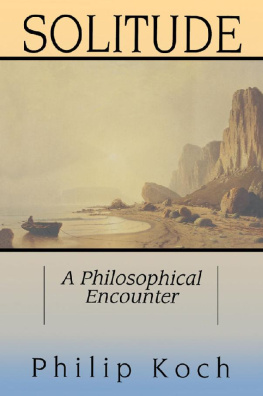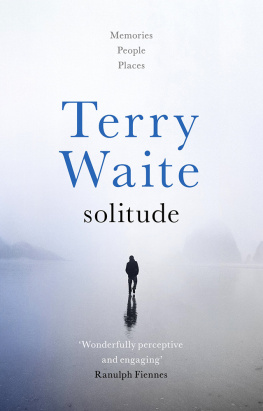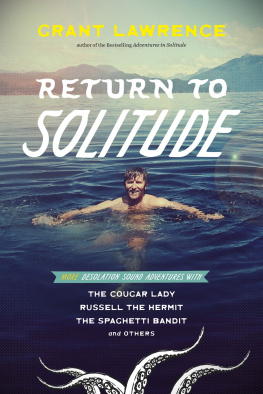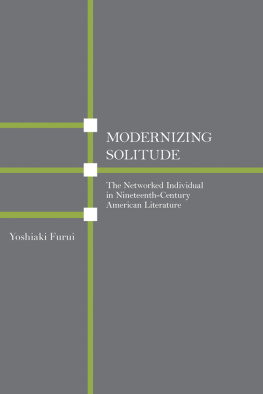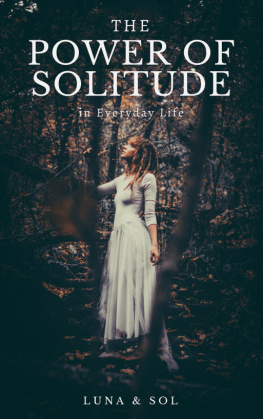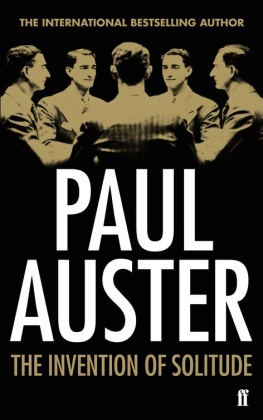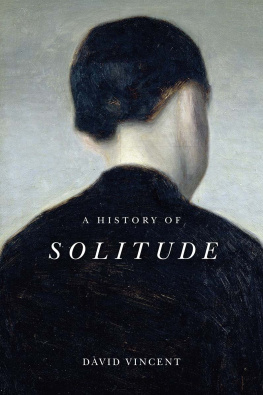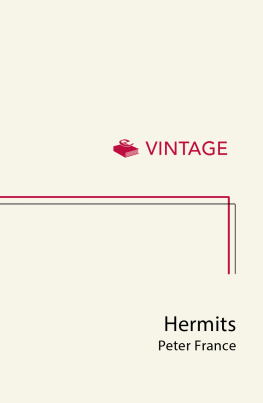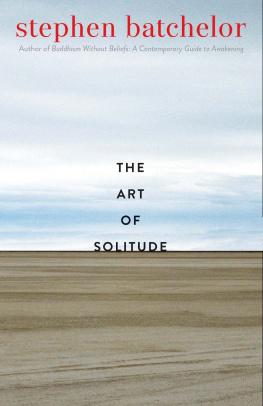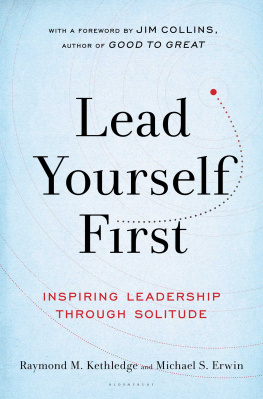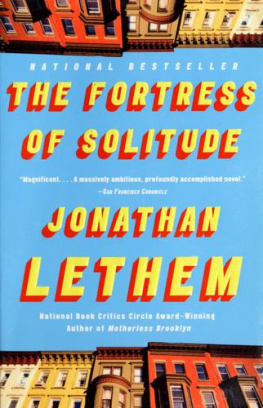

To order books from Open Court, call toll free 1-800-815-2280.
This book has been reproduced in a print-on-demand format from the 1997 Open Court printing.

Open Court Publishing Company is a division of Carus Publishing Company.
1994 by Open Court Publishing Company
First printing 1994
Second printing 1994
Third printing 1997
All rights reserved. No part of this publication may be reproduced, stored in a retrieval system, or transmitted, in any form or by any means, electronic, mechanical, photocopying, recording, or otherwise, without the prior written permission of the publisher, Open Court Publishing Company, a division of Carus Publishing Company, 315 Fifth Street, P.O. Box 300, Peru, Illinois 61354-0300.
Library of Congress Cataloging-in-Publication Data
Koch, Philip, 1942
Solitude: a philosophical encounter/Philip Koch.
p. cm.
Includes bibliographical references and index.
ISBN 978-0-81269-946-3
1. Solitude. I. Title
BJ1499.S6K59 1994
128'.4dc20
94-8836
CIP

To my father and mother, Philip L. Koch and Gertrude E. Koch, who, each in their own way, equipped me well for fruitful solitude.
CONTENTS


With Gratitude,
How ironic, that a solitary man, writing a solitary book, owes so much to so many people. Acknowledgement is too astringently grudging to properly thank the grace, the kindness, the wisdom that has been given, asking nothing, glad to help the work prosper; and the extent of my indebtedness can certainly not be captured by a few brief words. Nevertheless, I can at least record my grateful realization of the gifts given by:
Norman Malcolm and Robert Richman, philosophers in the oldest and truest sense, who taught me through their personal lives how to be a whole thinking person, cost what it may;
Don and Anne Mazer, who gave me (along with everything else) my first journal many years ago, a journal which was briefly an enemy, then a companion, then a source for much that is written here;
Professors Kenneth Butler, Ken Clatterbaugh, Charles Holmes, Graeme Hunter, Elizabeth Percival, Terry Pratt, John Smith and Peter Trnka, whose kind observations on earlier versions of the manuscript encouraged me to aim higher, yet speak always in my own voice;
Christine Couturier and Huang Hua-liang, who arranged meetings with Chinese scholars in Beijing which deepened my understanding of ancient Taoism and modern human nature;
Virginia Kopachevsky, whose mastery of the machinery of interlibrary loan made our small library seem limitless;
Ann and Howard Schonberger, Mike and Lynn Foster, Steve and Pat Patten, Wayne Attoe, Buzz and Marge Holmgren, Tim and Marian Nelson, Brenda Young, Lucina Baryluk, Jean-Louis Herivault and Barry Bartmann, who contained my solitude in their friendly concern, enabling me to think and write rather than to shrink into myself;
Kerri Mommer, my editor, whose confidence in the work and its author, together with a most gentle yet acute critical faculty, made the final stages of the project a time of completion rather than compromise;
Peter Koch, my son, always wise beyond his years, who taught me lessons about the transparency and yet opacity of unconditional love, whose presence has given me much of the joy of human encounter these last 22 years, and whose absence has never been far from the heart in my solitude;
Nadine Smith, who for five years has nurtured the writer of this manuscript and his ideas, giving better than she got in searching discussions, editing the manuscript with the greatest care while graciously minimizing her own contributions, teaching me the compatibility of solitude and relationship through countless daily acts of care and letting alone, helping me to remember, always, what love and solitude can give to each other.
I most humbly thank you all.

What is solitude? What is its meaning, its value, its place in a human life?
The reflections that fill the following pages have been accumulating since my thoughts began to turn upon themselves in childhood. At first the wondering was more inchoate than philosophical: a boy always on the run between family and friends began to notice empty places along the well-worn pathways. Strange, puzzling, a little scary; yet soon enough familiar, accepted, and not much later, sought (here I try to recall the difference between being eight and being eleven). Secure, alone, in the sheltered corner of the screened porch during thunderstorms, I knew nothing yet of the Sturm-und-Drangers who went before me, struggling to craggy heights and lashing themselves to towering trees in order to merge with the awesome thundering power of the storm. But, in a boys way, I felt that power and that ecstatic awe; and I watched expectantly for revelations in the lightning flashes.
Time elapsed and there were lonely student years, times when solitudes quiet wonders seemed but weak solace for the friendships and romantic transports I painfully lacked. True, there was the silence late at night when the dormitory slept; then ordinary things assumed a strange presence before the young chemical engineer who was discovering his disinterest in chemistry: the pen thrown upon the matted papers became, suddenly, WRITING, and the calculus book NUMBER, and the slide rule LAW. Later, when I read Derrida and Pythagoras and Plato, the partial understanding I gained would spring from the traces of those late night solitudes. But then, at the time, still innocent of the realities of adult relationship, I shook my head sadly at what seemed sad substitute gifts, so much second best to what I craved. And I felt a thousand years old.
Loves did come, finally, and then marriage, a child and years of family life. They were wonderful, when they were not unbearable, but now solitude began to urgently reassert itself. How could that tender student have imagined that his business with solitude would now become a struggle to find it, and then to build stockades around the few small clearings? I stole solitude then as everyone so placed steals it: escaping into chores, driving alone to work, standing alone at the hockey rink appearing to watch my sons team, listening to the house creak and the wind moan through the darkness of the hours of the wolf. Still the uncanny nature of the silence, still the power. And new thoughts began to grow in their own dark soil: maybe these silent spaces where ordinary things become numinous, where feelings become spruce boughs and scattered starsmaybe this, not relationship, is where I should find my place. Where any one should, if they had enough longing for the deepest reality and enough courage to pursue it.
Next page
